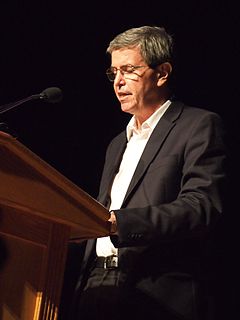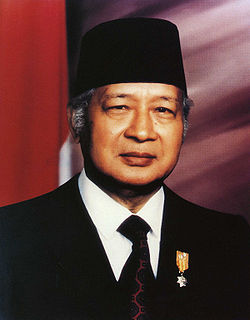A Quote by Evo Morales
In Latin America, in the past, it was almost impossible to guarantee democracy. There were military dictatorships, and nowadays there are not so many military dictatorships. Although we have a dictator in Honduras, as a result of a coup, now as a president, he is almost the only one I would say. But again led or managed, gestated by the U.S. government.
Related Quotes
There are leaks from the Embassy in Honduras. There was a coup in 2009. Obama broke with most of Latin America and even Europe and supported the military coup, still does. The ambassador in Honduras sent back a detailed analysis saying the coup was military, illegal, unconstitutional, and that the legitimate president was thrown out. Okay, we now know that Washington was perfectly aware of that and decided to support the military coup anyway. We should have known that at the time. The government has no right to keep that information secret.
During the Cold War, tensions between the West and the Soviet Union affected virtually all countries worldwide. As a result, throughout Latin America, guerrilla groups emerged, seeking to destabilize military dictatorships and attain democracy, freedom, and policy reform - goals that they believed could not be achieved peacefully.
As long-term institutions, I am totally against dictatorships. But a dictatorship may be a necessary system for a transitional period... Personally I prefer a liberal dictator to democratic government lacking liberalism. My personal impression - and this is valid for South America - is that in Chile, for example, we will witness a transition from a dictatorial government to a liberal government.
What happened in Ukraine? The coup d'état in Ukraine has led to a civil war, because, yes, let's say, many Ukrainians no longer trusted President Yanukovych. However, they should have legitimately come to the polls and voted for another head of state instead of staging a coup d'état. And after the coup d'état took place, someone supported it, someone was satisfied with it, while others were not. And those who did not like it were treated from the position of force. And that led to a civil war.











































